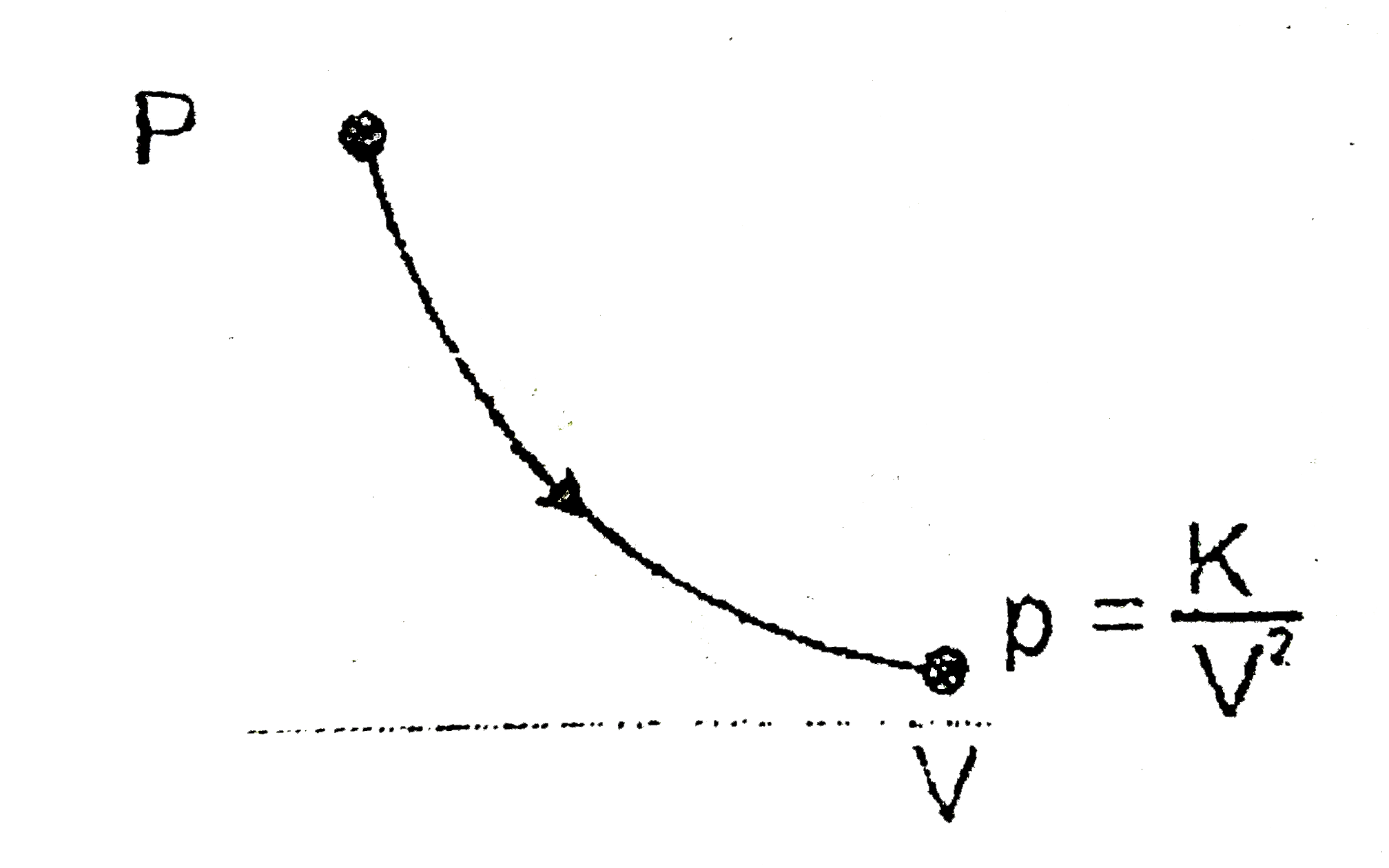Tempareture and volume of one mole of an ideal momatomic gas in a process are related as TV23=K ,where k is constant.The molar specific heat capacity for the process is
2R
(5R)/2
3R
Zero
The correct Answer is:A
To find the molar specific heat capacity for the process described by the equation TV2/3=K, we can follow these steps:
Step 1: Understand the relationship given
The relationship TV2/3=K indicates a specific process involving temperature T and volume V of an ideal monatomic gas. Here, K is a constant.
Step 2: Express temperature in terms of volume
From the equation, we can express temperature T as:
T=KV2/3
Step 3: Use the ideal gas law
According to the ideal gas law, we know that:
PV=nRT
For one mole of gas (n=1), this simplifies to:
PV=RT
Substituting our expression for T from Step 2 into the ideal gas law gives:
PV=R(KV2/3)
Rearranging this, we can express P in terms of V:
P=RKV5/3
Step 4: Identify the polytropic process
The relationship PVn=constant identifies a polytropic process. From our expression for P, we can see that:
P∝V−5/3
Thus, we have:
n=53
Step 5: Calculate the molar specific heat capacity
The formula for molar specific heat capacity C for a polytropic process is given by:
C=Cv+R1−n
For a monatomic ideal gas, the molar specific heat at constant volume Cv is:
Cv=3R2
Substituting n=53 into the specific heat capacity formula:
C=3R2+R1−53
Calculating the denominator:
1−53=−23
Thus:
C=3R2+R−23=3R2−3R2=0
Final Answer
The molar specific heat capacity for the process is:
C=0
The relationship TV2/3=K indicates a specific process involving temperature T and volume V of an ideal monatomic gas. Here, K is a constant.
From the equation, we can express temperature T as:
T=KV2/3
According to the ideal gas law, we know that:
PV=nRT
For one mole of gas (n=1), this simplifies to:
PV=RT
Substituting our expression for T from Step 2 into the ideal gas law gives:
PV=R(KV2/3)
Rearranging this, we can express P in terms of V:
P=RKV5/3
The relationship PVn=constant identifies a polytropic process. From our expression for P, we can see that:
P∝V−5/3
Thus, we have:
n=53
The formula for molar specific heat capacity C for a polytropic process is given by:
C=Cv+R1−n
For a monatomic ideal gas, the molar specific heat at constant volume Cv is:
Cv=3R2
Substituting n=53 into the specific heat capacity formula:
C=3R2+R1−53
Calculating the denominator:
1−53=−23
Thus:
C=3R2+R−23=3R2−3R2=0
The molar specific heat capacity for the process is:
C=0
Similar Questions
One mole of an ideal monatomic gas undergoes a process described by the equation PV3= constant. The heat capacity of the gas during this process is
View SolutionIn a process, temperature and volume of one mole of an ideal monoatomic gas are varied according to the relation VT= K, where K is a constant. In this process the temperataure of the gas is increased by ΔT. The amount of heat absorbed by gas is (R is gas constant).
View SolutionIn a process, temperature and volume of one mole of an ideal monoatomic gas are varied according to the relation VT= K, where K is a constant. In this process the temperataure of the gas is increased by ΔT. The amount of heat absorbed by gas is (R is gas constant).
View SolutionA certain amount of ideal monoatomic gas undergoes a process given by TV1/2= constant. The molar specific heat of the gas for the process will be given by
View Solutionan ideal diatomic gas undergoes a polytropic process described by the equation P√V=constant . The molar heat capacity of the gas during this process is
View SolutionThe molar heat capacity for the process shown in fig. is
 View Solution
View SolutionFor a certain process, pressure of diatomic gas varies according to the relation P=aV2, where a is constant. What is the molar heat capacity of the gas for this process ?
View SolutionWhat is the molar specific heat capacity of a gas undergoing an adiabatic process ?
View SolutionAn amount of heat is added to a monatomic ideal gas in a process in which the gas performs work Q2 on its surrounding. Find the molar heat capacity for the process.
View SolutionOne mole of an ideal monatomic gas undergoes the process P=αT1/2, where α is constant . If molar heat capacity of the gas is βR1 when R = gas constant then find the value of β.
View Solution

